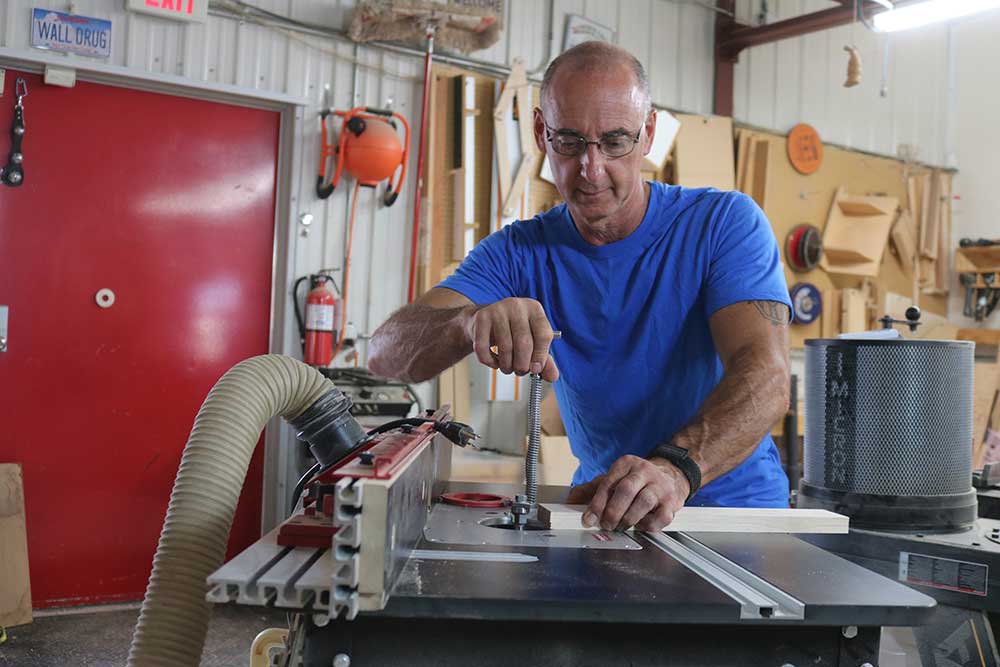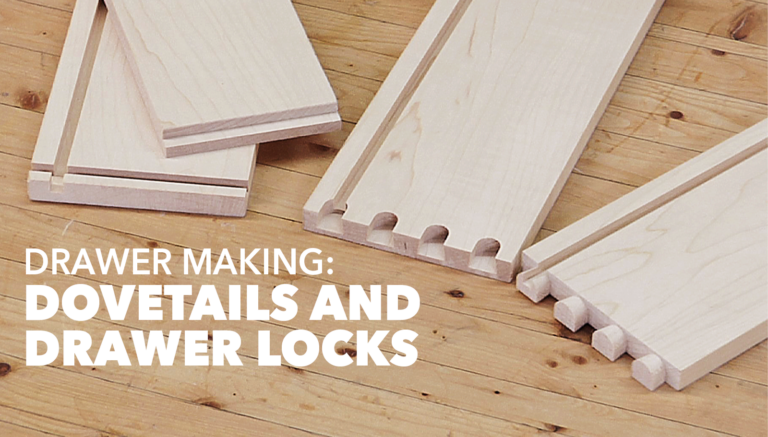
Drawer Making: Dovetails and Drawer Locks
George Vondriska
- In-depth Instruction; over 137 mins
- On-demand video access anytime
- Bonus downloadable PDF resources
- Access to class Q&A





Imagine the number of opening and closing cycles a drawer sees in its lifetime. Not only are people constantly pulling and pushing on drawer boxes, in most cases drawers are loaded with heavy stuff. Especially in your shop. That’s a lot of abuse. If you’re taking the time to make a drawer, take the time to make it right – and take this online video class to help you create superior drawers for any project.
Dovetails and drawer locks are time-tested joints for drawers. Using these types of joints will greatly reduce the likelihood of the joints on a drawer failing. Our “Drawer Making: Dovetails and Drawer Locks” woodworking instruction class teaches you must-have skills for these joints.
Half-Blind Dovetails
Half-blind dovetails are commonly used for drawers, and many people look for this joint as a sign of craftsmanship. This video instructional class teaches you how to set up and use a router-based jig. Jigs make dovetails easier than hand cutting, but there are many aspects of set-up that need to be done correctly in order for the jig to work correctly. This class provides many dovetail jig tips and tricks including lubricating the jig, aligning the drawer parts, setting bit depth, and handling the router.
Table Saw Drawer Locks
With a little practice and finesse, you can easily produce drawer lock joints on the table saw using a dado head. Once the blade height and fence position are correctly set, this is an incredibly fast way to make a solid joint, and cut the groove for the drawer bottom.
Joinery Alternatives
Like half-blinds, through dovetails require the correct setup. This video instruction will help you get a perfect fit. Drawer lock router bits may seem fussy to use, but not when you know the tricks this video class teaches you.
Your class Instructor George Vondriska brings many years of residential and commercial cabinet making and furniture making experience to you through this class. His easy-to-follow process and clear step-by-step instruction will help you to increase your confidence in making a better drawer, no matter what your next project is.
In addition to these key drawer making essentials in video form, this online class provides you with downloadable resources and helpful information to print and keep, including a detailed Class Guide you can follow for the key steps of the class instruction and source references for any specialized tools and material used in the class.
George Vondriska
Formally trained in technology education, George Vondriska has been teaching woodworking since 1986. He has been the managing editor of Woodworkers Guild of America since 2007. In addition to classes at his own Vondriska Woodworks School, George teaches at woodworking shows across the country and has taught woodworking for the Peace Corps, Andersen Window, Northwest Airlines and the Pentagon.

Bonus materials available after purchase